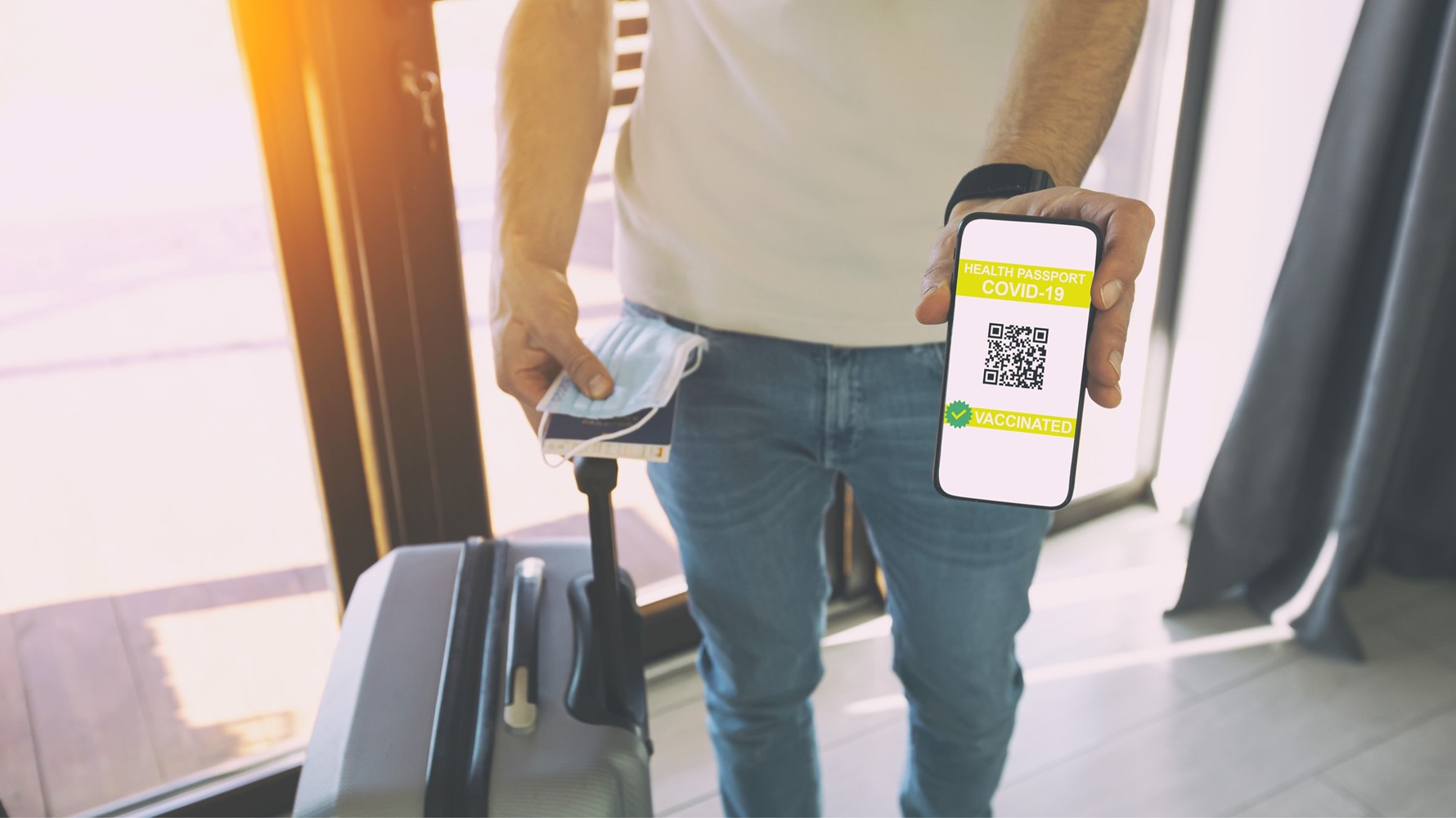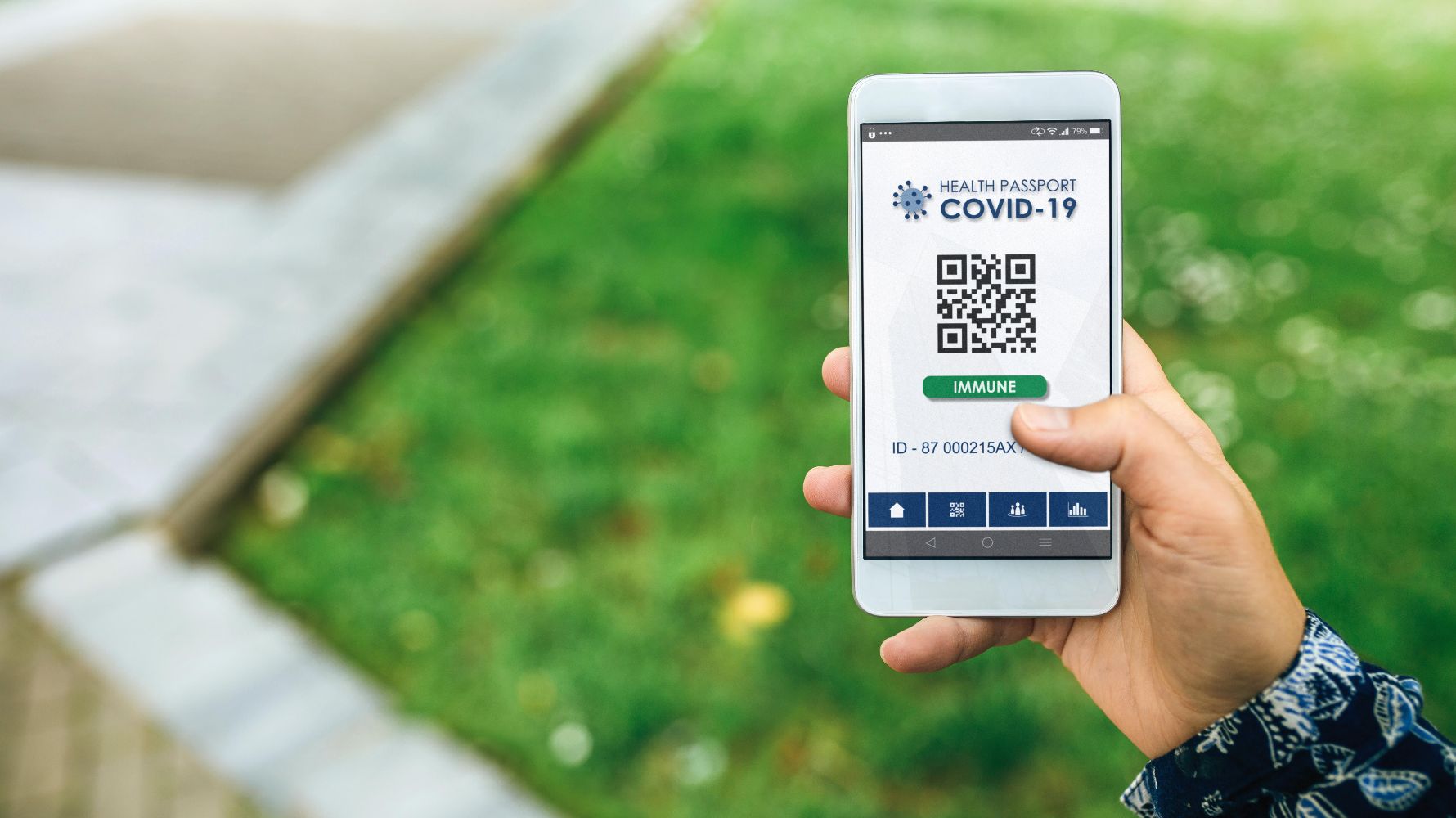An optimistic recovery scenario -- combining infection containment, vaccine rollout, and rebounding economy -- seems to be on the cards for the travel industry, one of the sectors most impacted by the pandemic. As the industry contemplates and explores new ways to recover, it will take a combined effort from governments and the whole travel industry to get the world traveling again. We also believe that technology and innovation will become powerful enablers of change.
By putting this theory into practice, governments and stakeholders across the travel industry are exploring the benefits of digital health passports or certificates to rebuild travel and tourism safely.
We conducted a survey earlier this year, across 9 markets, of over 9,000 travelers who had ventured abroad for leisure and business in the 18 months before the survey. We wanted to understand the travelers’ attitudes to digital health passports and in storing health data digitally.
About 41 percent of the people we surveyed said they would book international travel within 6 weeks of restrictions lifting. We also found that the comfort level of using digital health data is high globally. About 91 percent of people stated that technology would increase their confidence to travel in the next 12 months. Interestingly, this confidence level was 84 percent in September 2020.
However, we could see the key differences in traveler sentiment and the kind of technology they would be comfortable using in different markets. For example, the top 3 most-cited technologies that would increase travel confidence are mobile applications that share on-trip notifications, contactless mobile payments, and mobile boarding. On using digital health passports and sharing digital health data, here’s what we found:
Europe is more apprehensive about digital health passports
The survey pointed towards countries like Singapore, India, UAE and the US as most interested/comfortable in using digital health passports at all times when they travel. For example, 65 percent of the travelers from Singapore would use digital health passports if most countries accept them and are regulated by international standards. Comparatively, people in the UK, Russia, Spain, and Germany are a bit reluctant, with France the least comfortable at 33 percent. It may depend on how health data is shared and stored, as we found that travelers feel more comfortable sharing data with airlines they frequently use.
Travelers want to know how data is stored and shared
Close to 70 percent of travelers surveyed said they would be comfortable sharing health data if airlines they most frequently traveled with offered a way to store the data in an app they used already. However, the purpose of sharing the data differs. While 3 in 5 travelers would be comfortable providing the information purely for transportation, about half of them would be more interested in sharing the data for booking and checking. When we compared the data storage and the comfort of sharing, India, the US and the UAE were the top contenders for sharing data with frequently used airlines and downloading third-party apps. Our research indicated that the European countries (Germany and France being the lowest) are more reluctant to share health data and more apprehensive about where it is stored. That brings us to the question:
Concerns about personal information
We found that the general concern is similar in the majority of markets. More than one-third of travelers in the US and Europe, and about half of the respondents in Russia and Singapore, cited the risk of having their personal information hacked. However, the survey revealed that the concerns vary a little when we look at mainland Europe. Transparency is the top concern. For example, 40 percent of the respondents in Germany feel a lack of control and transparency over whom the data is shared with is a deterrent. For 38 percent of French travelers, the concern is privacy.
Most travelers point towards the right technology, be it existing applications offered by airlines to store and share health data or trustworthy third-party applications to boost confidence. The survey also revealed that understanding the traveler sentiment towards digital health data across different markets is crucial to rebuilding travel.
For more from Amadeus’ Global Report on Rebuild Travel: Digital Health Survey, check out the reports.




